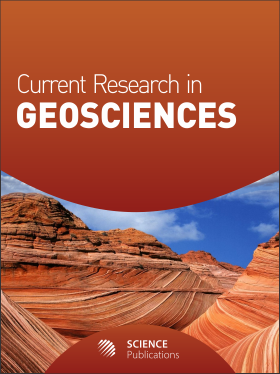Soil-moisture Retention Characteristics of Earth Materials in the Weathering Profile over a Porphyritic Biotite Granite
- 1 University of Malaya, Malaysia
Abstract
Problem statement: Three broad morphological zones and several sub-zones were differentiated within the weathering profile based on variations in earth materials and the degree of preservation of original bedrock minerals, textures and structures. Approach: The topmost Zone I (Grade 6) is some 12 m thick and comprises completely weathered bedrock materials (mainly a stiff, clayey sand) with indistinct relict bedrock textures. Results: The intermediate Zone II (Grades 3, 4 and 5) is some 30 m thick and consists of in situ, moderately to highly weathered bedrock materials (mostly friable, gravelly silty sands and coreboulders) that indistinctly to distinctly preserve the original bedrock minerals, textures and structures; the degree of preservation increasing with depth. The bottom Zone III (Grade 2) consists of continuous bedrock with effects of weathering only along and between structural discontinuity planes; the earth materials of zones I and II thus representing the residual soil over bedrock. Constant volume samples show a general increase in porosity, silt and clay fractions up the weathering profile, but a corresponding decrease in the sand and gravel fractions with sub-zone IC having the highest density and lowest porosity. Soil-moisture retention curves, determined with the pressure plate method, show increasing suctions from 0-4.19 pF (0 to -1,500 kPa) with decreasing moisture contents of 35-18% for sub-zone IC samples, 32-7% for sub-zone IIB samples and some 25-4% for sub-zone IID samples. Conclusion/Recommendations: These soil-moisture retention variations reflect textural differences and point to the inherent role of suction in the unsaturated earth materials. Differences in the volumes of calculated drainage and storage pores indicate that the earth materials of sub-zone IC will have the lowest rates of infiltration and percolation, whilst those of subzone IID will have the fastest rates and those from sub-zone IIB, intermediate rates.
DOI: https://doi.org/10.3844/ajgsp.2010.12.20

- 5,839 Views
- 3,831 Downloads
- 5 Citations
Download
Keywords
- Morphological zonation
- weathering profile
- unsaturated soils
- suction variation
